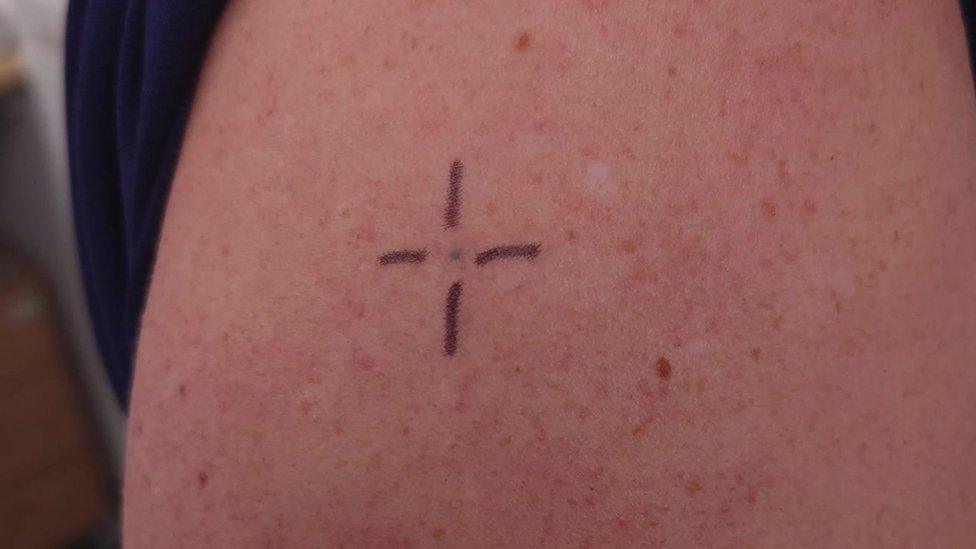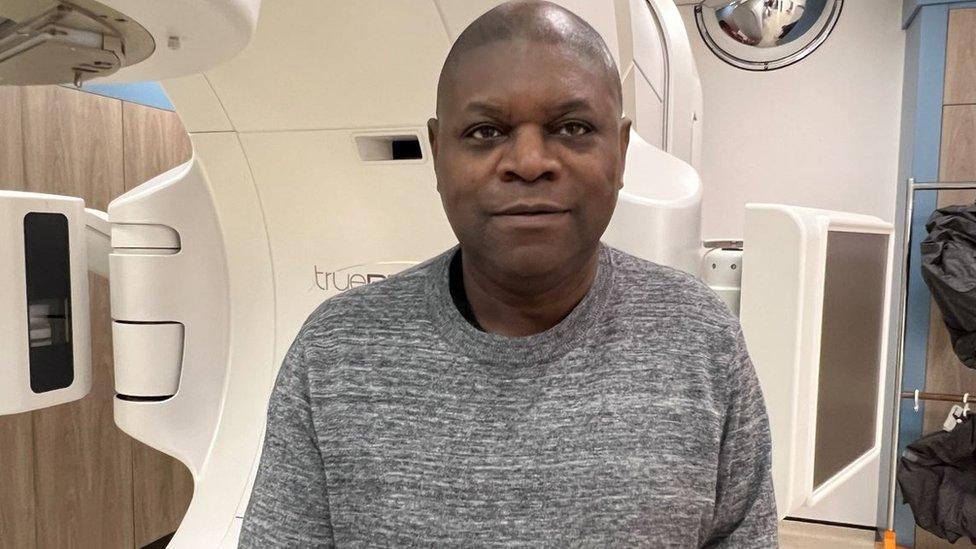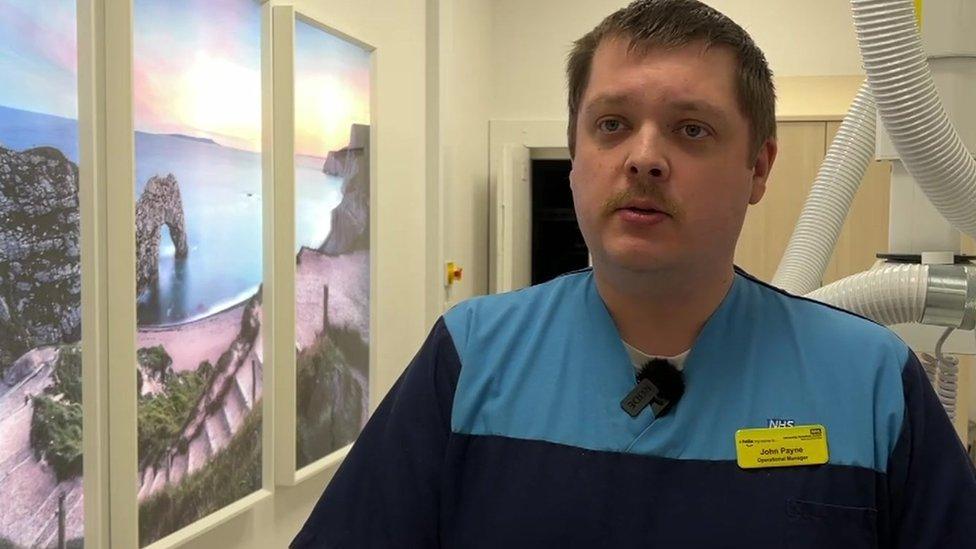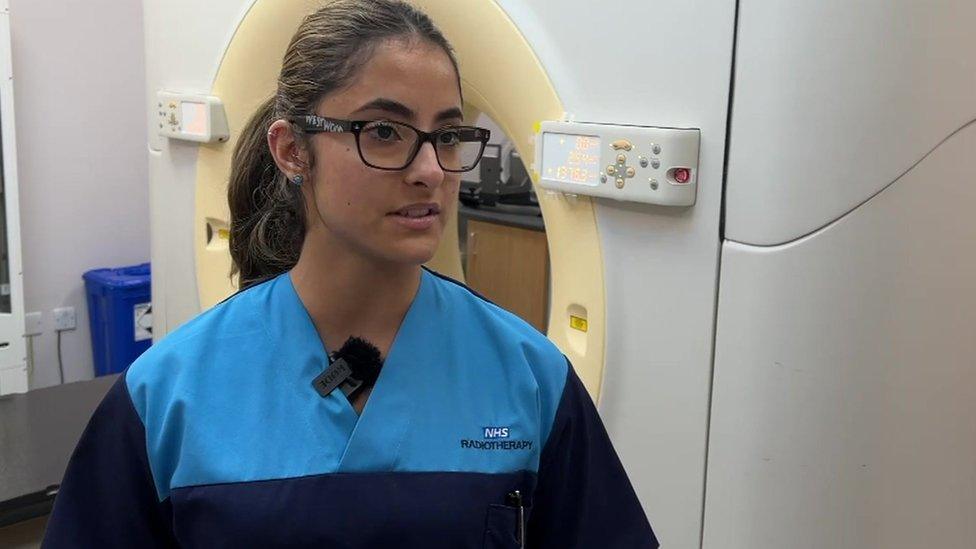Cancer treatment tattoos 'in the past' for hundreds of Dorset patients
- Published

Usually patients are marked with permanent ink to pinpoint the exact area for treatment
Tattoos given to people in order to help deliver radiotherapy are a thing of the past for some NHS patients thanks to newly-available technology.
Until now, cancer patients have been marked with permanent ink - small dots or lines - to pinpoint the exact treatment area.
It leaves a permanent reminder of what can be a long and stressful journey.
Using 3D cameras to map a patient's body, the new technology also makes the process quicker and more precise.
Olatunjie Williams is among the latest wave of cancer patients at Dorset's Poole Hospital to receive the new targeted way of delivering radiotherapy.

Olatunjie Williams said he was happy he did not have to be given a tattoo for his treatment
He told the BBC: "I'm receiving prostate cancer treatment - my father had it, my brother and I've got it."
Mr Williams said he had expected to be tattooed because he brother had been and was "happy that I didn't have to have it".
Radiotherapy operational manager at the hospital John Payne described the new technology, which was previously only available privately.

John Payne said the hospital's new technology allows accuracy to within 1mm
He said: "When the patient goes on the treatment machine, the scan turns on and projects a red pattern of light on the patient, which is sent back to the computer.
"It can see where the patient is meant to be versus where the patient is and, within less than 1mm, you can put your patient exactly where they were when they had their radiotherapy planning."
Melissa Manrique, therapeutic radiographer, said it was "fantastic" for patients because it means there is no need for the "invasive" tattooing.
She added: "And it's nicer because they used to have to see them [the tattoos] on their skin and that may bring back some memories for them so it's quite nice to eliminate that factor."

Melissa Manrique believes it is nicer for patients not to be tattooed for radiotherapy

Follow BBC South on Facebook, external, X, external, or Instagram, external. Send your story ideas to south.newsonline@bbc.co.uk, external.
Related topics
- Published16 May 2023

- Published11 October 2023
